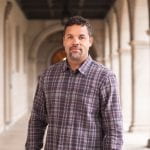Inequalities and the Increased Risk of Political Violence
October 12, 2021
9am – 2.30pm
Virtual Event
Register at: tinyurl.com/bahai-symposium
The realities of the Pandemic in 2020 have highlighted the underlying structural causes of inequality in the United States, and across the globe. The clear differences between those who can stay at home and stay safe, and those who cannot, highlights the corrosive effects of inequalities. Throughout 2020 we have also witnessed an increase in political instability with growing polarization over social issues and public health protection measures. This civil unrest highlights the fragility of our current social systems, and demonstrates the consequences of growing economic inequality.
At the same time the November elections in the United States involved the largest numbers of voter participation recorded since 1900, perhaps a hopeful sign of increased political engagement. The question remains, now that the impact and consequences of these inequalities have been exposed, will the pandemic be a catalyst for change? This symposium will explore the underlying inequalities in our social systems, discuss potential solutions, and examine the extent to which these structural faults could lead to a growth in political violence and disorder.
Speakers:

 Professor Anke Hoeffler, Professor of Development Research, Department of Politics & Public Administration, University of Konstanz
Professor Anke Hoeffler, Professor of Development Research, Department of Politics & Public Administration, University of Konstanz
Anke Hoeffler’s research is in the areas of development and security. She is a widely cited social scientists and received an Alexander von Humboldt professorship, Germany’s highest award for international research. In February 2019 she left the University of Oxford and moved to the University of Konstanz in Germany where she has a chair in development policy in the Department of Politics and Public Administration. Prof. Hoeffler holds a DPhil in economics from the University of Oxford, an MSc in economics from Birkbeck College, University of London and a Diplom in Volkswirschaftslehre from the University of Würzburg. Her research interests are wide ranging and interdisciplinary. Broadly, she is interested in the social causes of excess morbidity and mortality and uses mainly quantitative methods in her academic quest. Current research projects focus on: (1) the impact of interpersonal violence on development, in particular violence against children and women (2) the relationship between interpersonal & political violence (3) costs of violence.

Professor Kate Pickett, Professor of Epidemiology, University of York
Kate Pickett is Professor of Epidemiology, Deputy Director of the Centre for Future Health, and Associate Director of the Leverhulme Centre for Anthropocene Biodiversity, all at the University of York. She is co-author, with Richard Wilkinson, of The Spirit Level (2009) and The Inner Level (2018). Kate is a Trustee of the Wellbeing Economy Alliance, and patron of The Equality Trust and recently chaired the Greater Manchester Independent Inequalities Commission. Follow her at @ProfKEPickett
 Professor Geoff K. Ward, Professor of African and African-American Studies Faculty Affiliate in Sociology and American Culture Studies, Washington University in St. Louis
Professor Geoff K. Ward, Professor of African and African-American Studies Faculty Affiliate in Sociology and American Culture Studies, Washington University in St. Louis
Geoff K. Ward(link is external) is Professor of African and African American Studies, Sociology and American Culture Studies at Washington University in St. Louis. His scholarship is broadly concerned with racial politics of social control and the pursuit of racial justice, historically and today. Current projects examine histories of racial violence, their legacies, and implications for redress, and combine scholarship with creative projects to support research and teaching, engage broader audiences, and facilitate the visibility, use and impact of this work. The author of the award-winning book, The Black Child Savers: Racial Democracy and Juvenile Justice(link is external), and numerous research articles and essays, he most recently co-edited “Legacies of Racial Violence: Clarifying and Addressing the Presence of the Past,” a special issue of the Annals of the American Academy of Political and Social Science(link is external). He also pursues these interests as a member of the community-based Reparative Justice Coalition of St. Louis, through service on the Clayton (MO) Mayor’s Commemorative Landscape Taskforce(link is external), and as director of WashU & Slavery(link is external), an initiative of the Center for the Study of Race, Ethnicity and Equity (CRE2) aligned with the global consortium of Universities Studying Slavery.
Symposium Schedule
| 9:15-9:30 | Opening Remarks
Hoda Mahmoudi Research Professor and Chair, The Baha’i Chair for World Peace |
| 9:30 – 10:30 | Professor Anke Hoeffler
Professor of Development Research, Department of Politics & Public Administration, University of Konstanz What are the global costs of violence? In my talk I describe and analyse the global costs of violence and discuss possible interventions to lower current levels of violence. Civil wars, terrorism, homicide and domestic violence cause enormous human suffering and I want to raise awareness of how large the problem is. I quantify the problem by measuring the cost of violence and discuss the advantages and shortcomings of this approach. You may be sceptical whether the social costs of violence can be measured and expressed in economic terms. Can and should a social phenomenon, such as violence, be quantified? And how does this knowledge help us to reduce current levels of violence? |
| 10:30 – 10:45 | Break |
| 10:45 – 11:45 | Professor Kate Pickett
Professor of Epidemiology, University of York How More Equal Societies Reduce Stress, Restore Sanity and Improve Everyone’s Wellbeing Comparing numerous measures of population health and wellbeing, it is clear that societies which tend to do well on one measure tend to do well on all of them, and the ones which do badly, do badly on all. The key is the amount of inequality in each society; the more unequal a society is – the more ill health and social problems it has. Inequality has always been regarded as divisive and socially corrosive. This talk will explore the extent to which inequality is central to understanding dimensions of social unrest, the climate emergency and the unequal impact of the Covid-19 pandemic. |
| 11:45 -13:00 | Break |
| 13:00 – 14:00 | Professor Geoff K Ward
Professor of African and African-American Studies Faculty Affiliate in Sociology and American Culture Studies, Washington University in St. Louis Haunting Legacies of Racial Violence: Clarifying and Addressing the Presence of the Past Scholars increasingly agree that U.S. histories of racial violence relate to contemporary patterns of conflict, violence and inequality, and civic leaders are growing committed to addressing these legacies today. In this talk I examine some of the contributions and limitations of social science and humanities scholarship on legacies of racial violence and implications of this work for reparative policies and practices, with a focus on several collaborative efforts over the past decade. Recognizing that we must face these haunting legacies to advance a just and peaceful future, I consider several key challenges, sources of optimism, and pressing questions regarding this urgent and growing reckoning. |
| 14:00-14:15 | Closing Remarks |
This event is co-sponsored by:


About the Author:
 Kate Seaman is the Assistant Director to the Bahá’í Chair for World Peace where she supports the research activities of the Chair. Kate is interested in understanding normative changes at the global level and how these changes impact on the creation of peace.
Kate Seaman is the Assistant Director to the Bahá’í Chair for World Peace where she supports the research activities of the Chair. Kate is interested in understanding normative changes at the global level and how these changes impact on the creation of peace.
You can find out more about the Bahá’í Chair by watching our video here.

